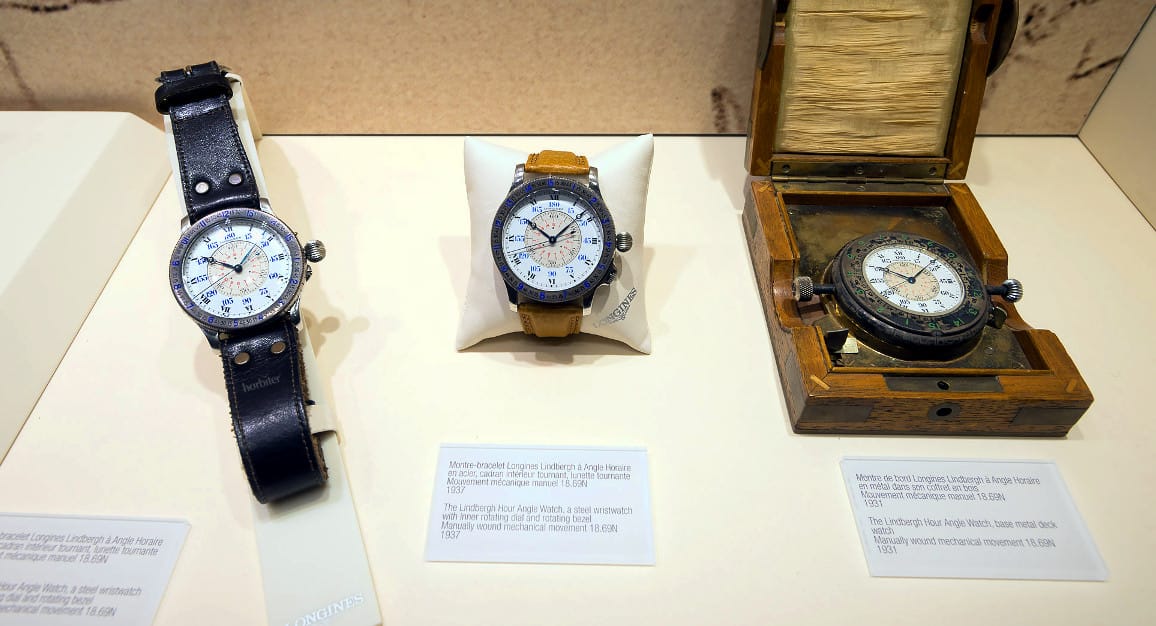It has finally happened; after two aborted missions – my fault – I managed to visit the Longines museum in Saint-Imier. That was the present that Longines gave to me on a fresh September Monday, the trip to a place that opens, once and for all, my eyes on to the story of a successful brand that has written many pages in the history book of watch-making. This is a present that everyone can afford as the brand with the winged hourglass as its logo allows every fan to enter its museum, even from their own living room through a virtual application that can be found on the manufacturer’s official website. This type of visit, however, can’t replace the real life experience!
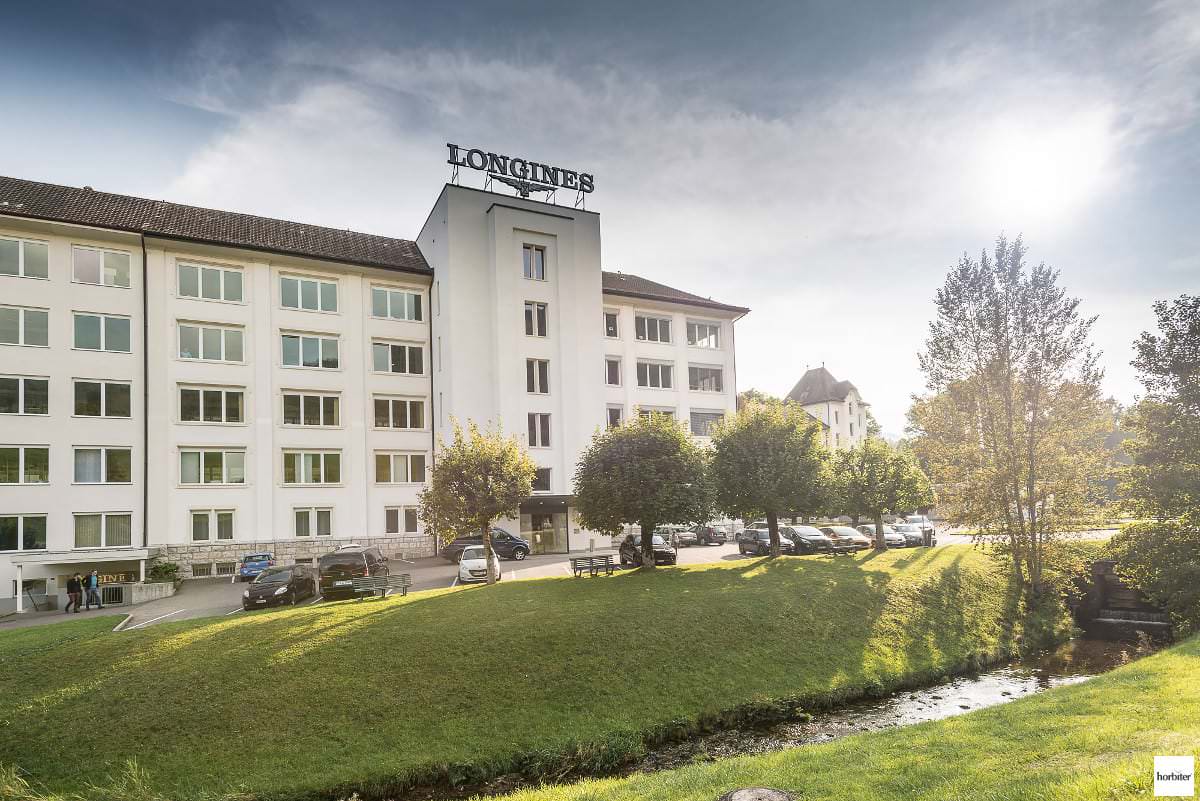 This is an experience that, in conjunction with a final interview to the current president, helps to understand the reason why this brand has never known the meaning of the word “crisis” and has been enjoying one success after another. The museum lies within the historic manufacturing workshops in Saint–Imier, the official seat of the brand, a historic building nested among luscious green hills – pending the arrival of some snow – and situated about 30 minutes by car from Neuchatel. The arrival is an experience in itself because you reach the Longines museum after driving along a road full of bends, a small haven if you like driving and you are on board the right car too.
This is an experience that, in conjunction with a final interview to the current president, helps to understand the reason why this brand has never known the meaning of the word “crisis” and has been enjoying one success after another. The museum lies within the historic manufacturing workshops in Saint–Imier, the official seat of the brand, a historic building nested among luscious green hills – pending the arrival of some snow – and situated about 30 minutes by car from Neuchatel. The arrival is an experience in itself because you reach the Longines museum after driving along a road full of bends, a small haven if you like driving and you are on board the right car too.
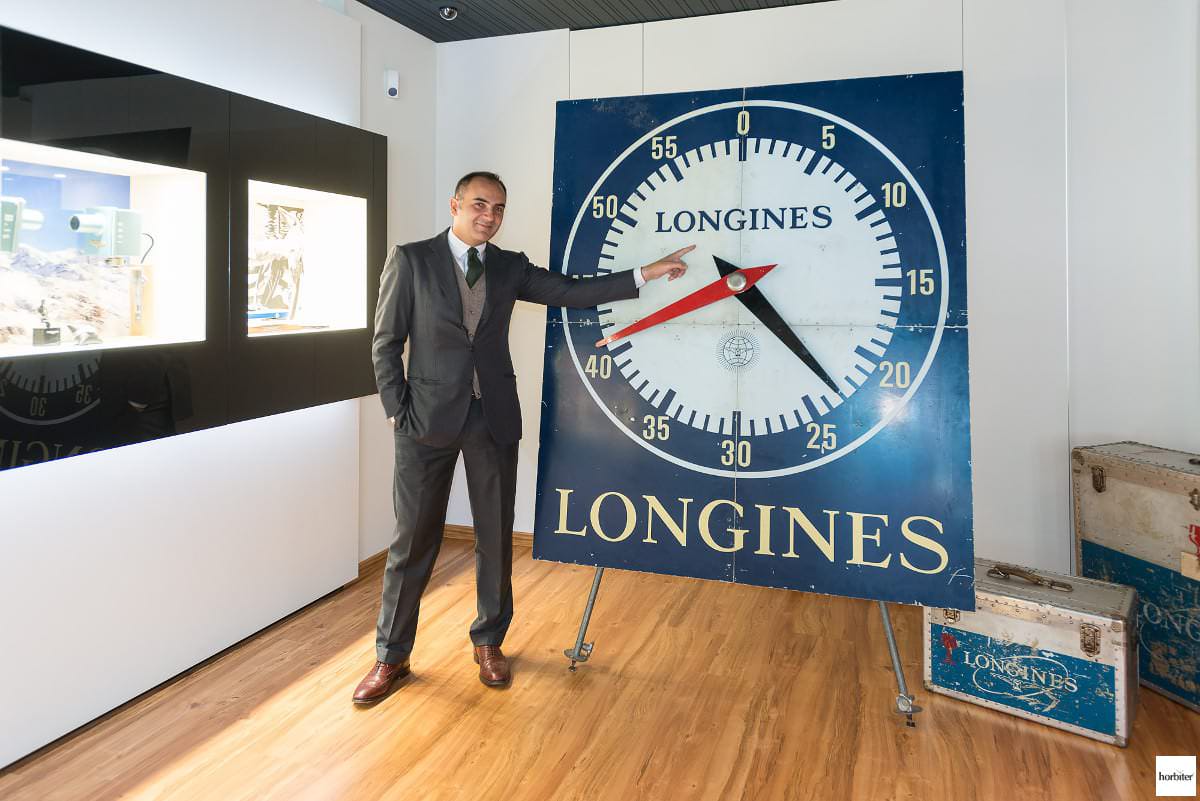 Like in every other respectable museum, the visitor is guided through a planned route; there are six areas that have been divided up by topic and history. The first two areas that have laconically been named “Agassiz” and “Francillon” celebrate the brand’s origin and the main two characters in its history. The remaining four areas are called “Tradition Horlogère”, “Aventure”, “Sport”, “Publicité” et “Élégance”. The latter name is self-explanatory for a brand, whose mission statement has been the sentence “Elegance is an attitude” for years and that crafts every single item in full accordance with this motto, from its timepieces to the careful choice of its ambassadors.
Like in every other respectable museum, the visitor is guided through a planned route; there are six areas that have been divided up by topic and history. The first two areas that have laconically been named “Agassiz” and “Francillon” celebrate the brand’s origin and the main two characters in its history. The remaining four areas are called “Tradition Horlogère”, “Aventure”, “Sport”, “Publicité” et “Élégance”. The latter name is self-explanatory for a brand, whose mission statement has been the sentence “Elegance is an attitude” for years and that crafts every single item in full accordance with this motto, from its timepieces to the careful choice of its ambassadors.
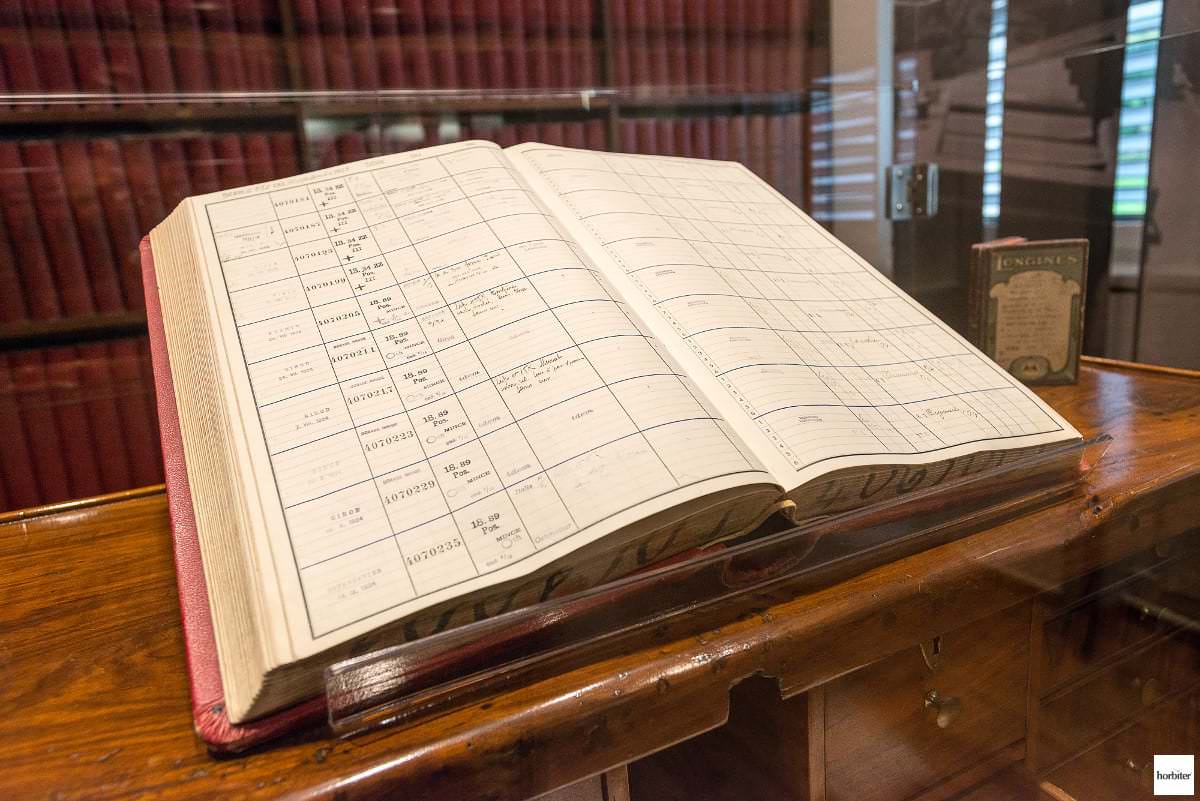 In 1832, Auguste Agassiz founded a “comptoir d’établissage”; basically, the workers manufactured the timepieces at home, which were then assembled and sold by Agassiz in a common building. Quite a bizarre entrepreneurial model that sounds almost unreal, it was Ernest Francillon, in 1867, who transformed Longines into a true manufacturing company and who moved every job under one roof. That’s how the Longines brand that we know today was born and when the first of the company’s official logo – the winged hourglass – was sketched.
In 1832, Auguste Agassiz founded a “comptoir d’établissage”; basically, the workers manufactured the timepieces at home, which were then assembled and sold by Agassiz in a common building. Quite a bizarre entrepreneurial model that sounds almost unreal, it was Ernest Francillon, in 1867, who transformed Longines into a true manufacturing company and who moved every job under one roof. That’s how the Longines brand that we know today was born and when the first of the company’s official logo – the winged hourglass – was sketched.
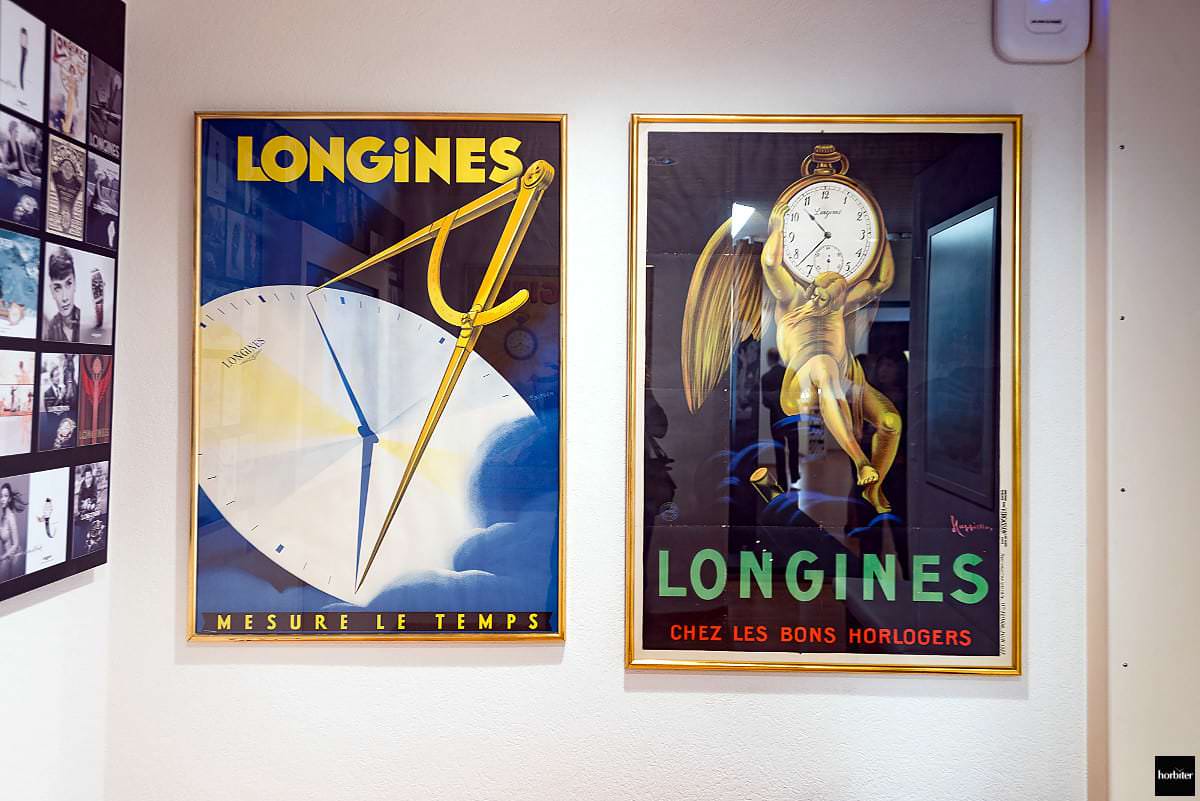 The tour starts from a big room where the brand’s archives have been gathered together, it is a huge collection of documents detailing information about years of manufacture, models, calibers, resellers and so on, it is not only a historic archive but rather a manner to go back to the origin of every single timepiece that the company has released since 1867. If you are interested in gathering some more information about a timepiece that you have inherited, this is the best place where you should send your Longines watch to; it is an extraordinary place, whose value is far superior than that of any modern digital archive. These books are the most authentic way to track back the roots of an old Longines timepiece.
The tour starts from a big room where the brand’s archives have been gathered together, it is a huge collection of documents detailing information about years of manufacture, models, calibers, resellers and so on, it is not only a historic archive but rather a manner to go back to the origin of every single timepiece that the company has released since 1867. If you are interested in gathering some more information about a timepiece that you have inherited, this is the best place where you should send your Longines watch to; it is an extraordinary place, whose value is far superior than that of any modern digital archive. These books are the most authentic way to track back the roots of an old Longines timepiece.
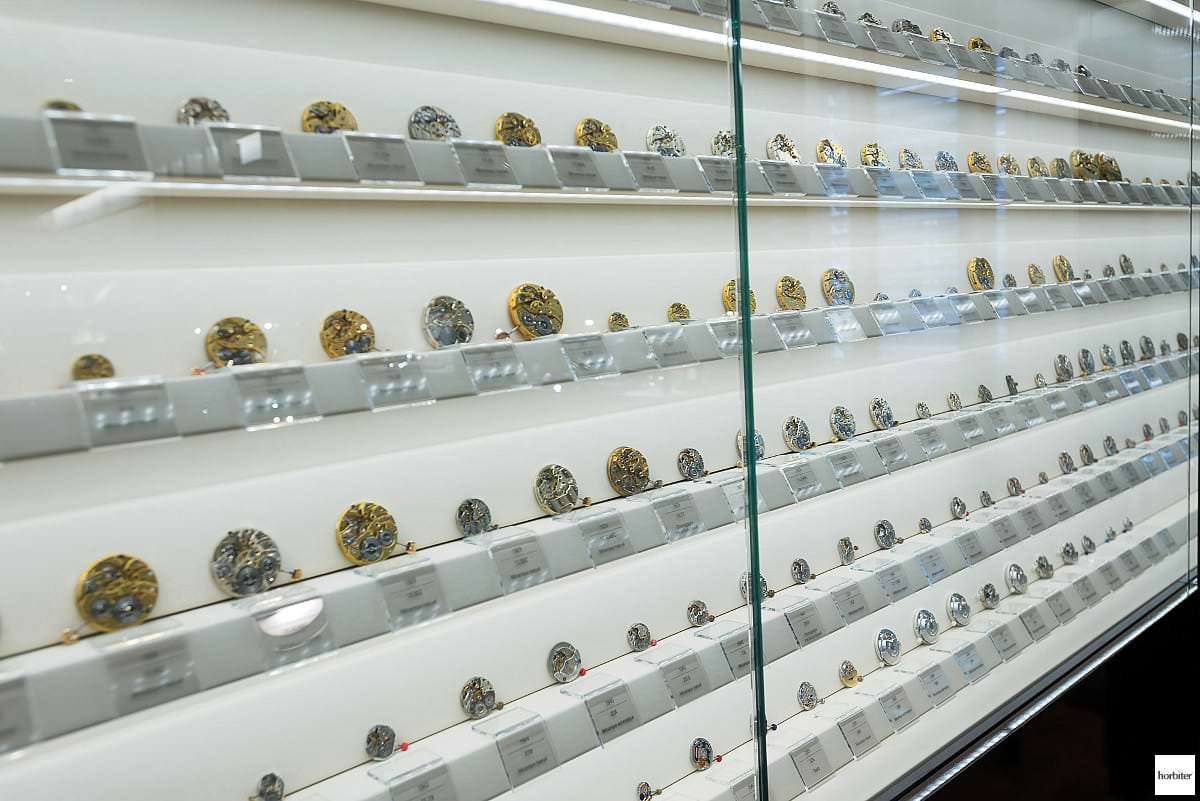 When you enter the “Tradition Horlogère” section and browse among the display cases within the room, you will suddenly bump into an enormous showcase situated in the back. The showcase is equipped with a scrollable magnifier and it displays all the calibers that Longines has crafted until today, it is the proof of a continuous and rich production made up of small rectangular manual calibers, calibers of every possible size and shape, extremely precise quartz movements and “unidentified objects” like the 21.29CS caliber that you can see in this picture.
When you enter the “Tradition Horlogère” section and browse among the display cases within the room, you will suddenly bump into an enormous showcase situated in the back. The showcase is equipped with a scrollable magnifier and it displays all the calibers that Longines has crafted until today, it is the proof of a continuous and rich production made up of small rectangular manual calibers, calibers of every possible size and shape, extremely precise quartz movements and “unidentified objects” like the 21.29CS caliber that you can see in this picture.
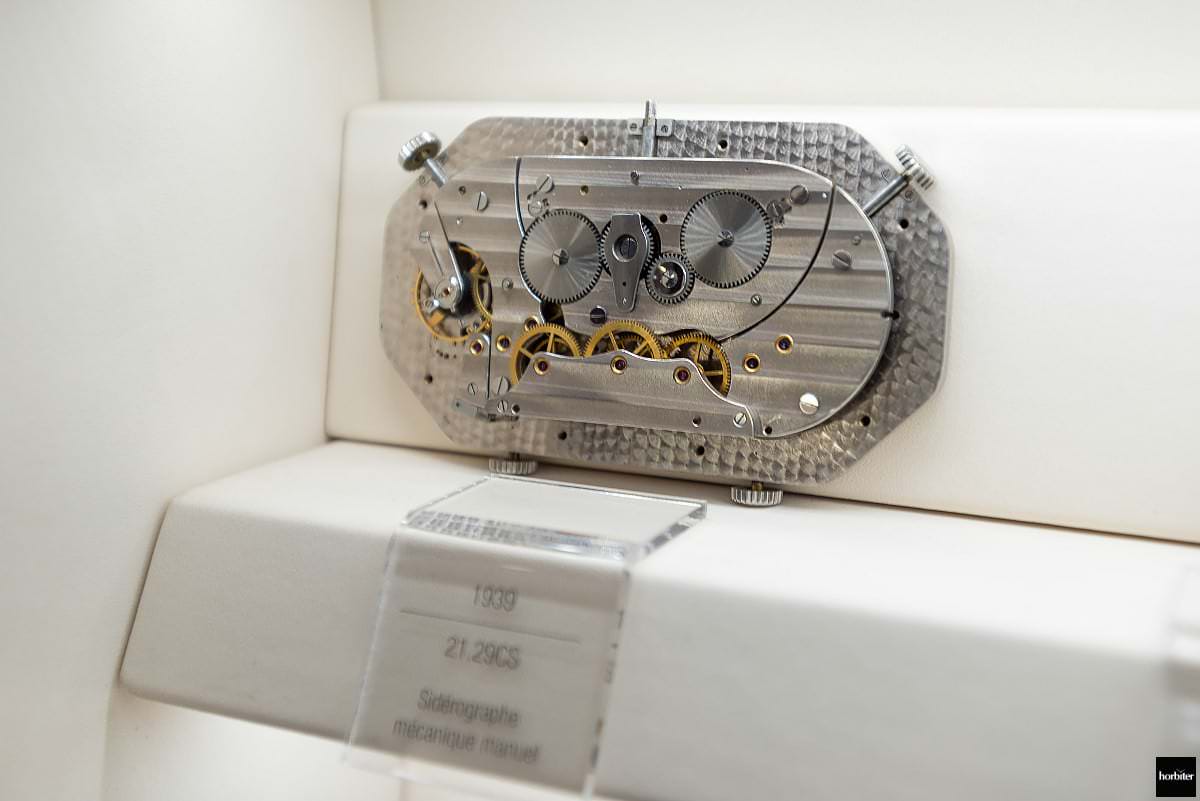 The calibers are mounted on wrist chronographs, race timing chronographs, ultra-slim timepieces with a rectangular case and exploration instruments too. Books and the web often talk about the 20A caliber, the 20H caliber, and the 13NZ caliber but these movements are only the tip of the iceberg or, better, the milestones of a never-ending research path that is leading towards chronometric precision. The 13NZ is a single-button or double-button caliber that was patented in 1936; it lies within the case of some of the two-counter-chronographs that are most sought-after by collectors, timepieces which are worth between 5,000 and 25,000 euro.
The calibers are mounted on wrist chronographs, race timing chronographs, ultra-slim timepieces with a rectangular case and exploration instruments too. Books and the web often talk about the 20A caliber, the 20H caliber, and the 13NZ caliber but these movements are only the tip of the iceberg or, better, the milestones of a never-ending research path that is leading towards chronometric precision. The 13NZ is a single-button or double-button caliber that was patented in 1936; it lies within the case of some of the two-counter-chronographs that are most sought-after by collectors, timepieces which are worth between 5,000 and 25,000 euro.
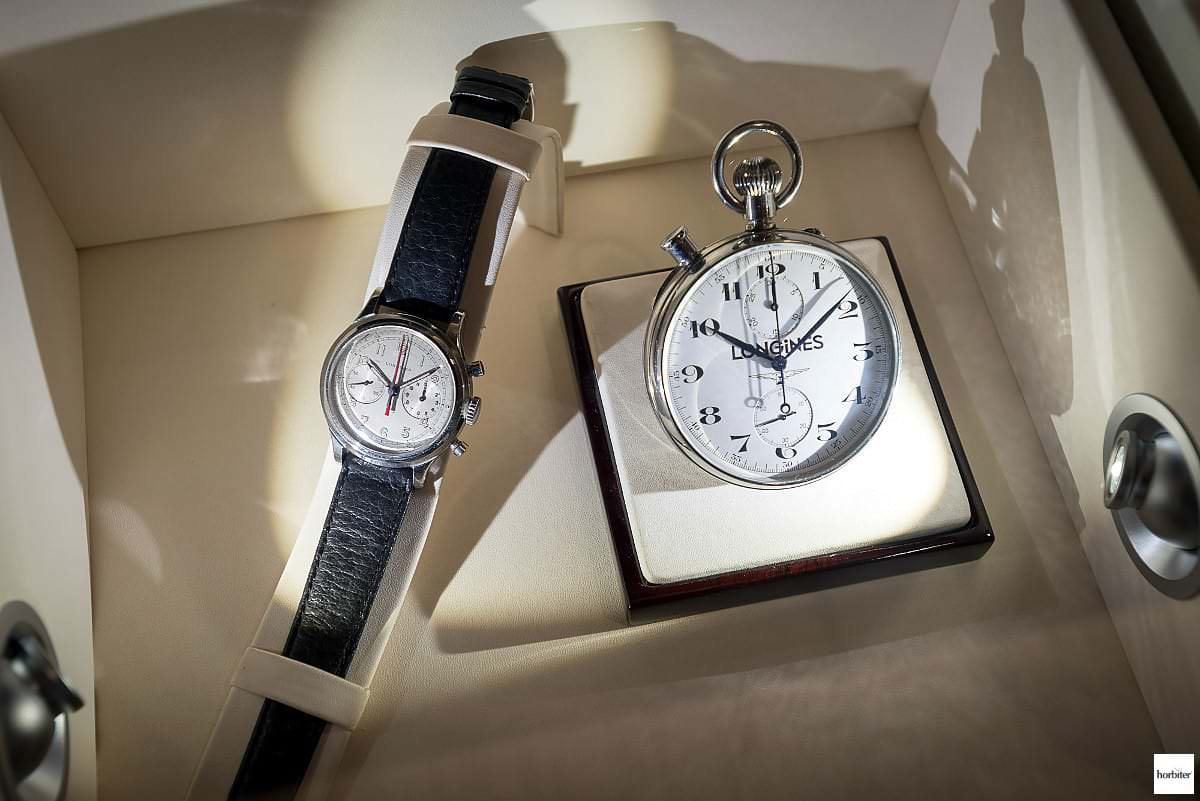 If you take a look at the mechanic side of this caliber, you will immediately realize why, on all the most recent L688’s, the chrono function is sorted through a column wheel mechanism; this solution has been one of the brand’s characteristics since 1936. Among the most important watches crafted by Longines, let us also remember this Lépine pocket-watch made of 18-carat-gold and equipped with a manual winding movement, Breguet hands, and calendar and moon phases.
If you take a look at the mechanic side of this caliber, you will immediately realize why, on all the most recent L688’s, the chrono function is sorted through a column wheel mechanism; this solution has been one of the brand’s characteristics since 1936. Among the most important watches crafted by Longines, let us also remember this Lépine pocket-watch made of 18-carat-gold and equipped with a manual winding movement, Breguet hands, and calendar and moon phases.
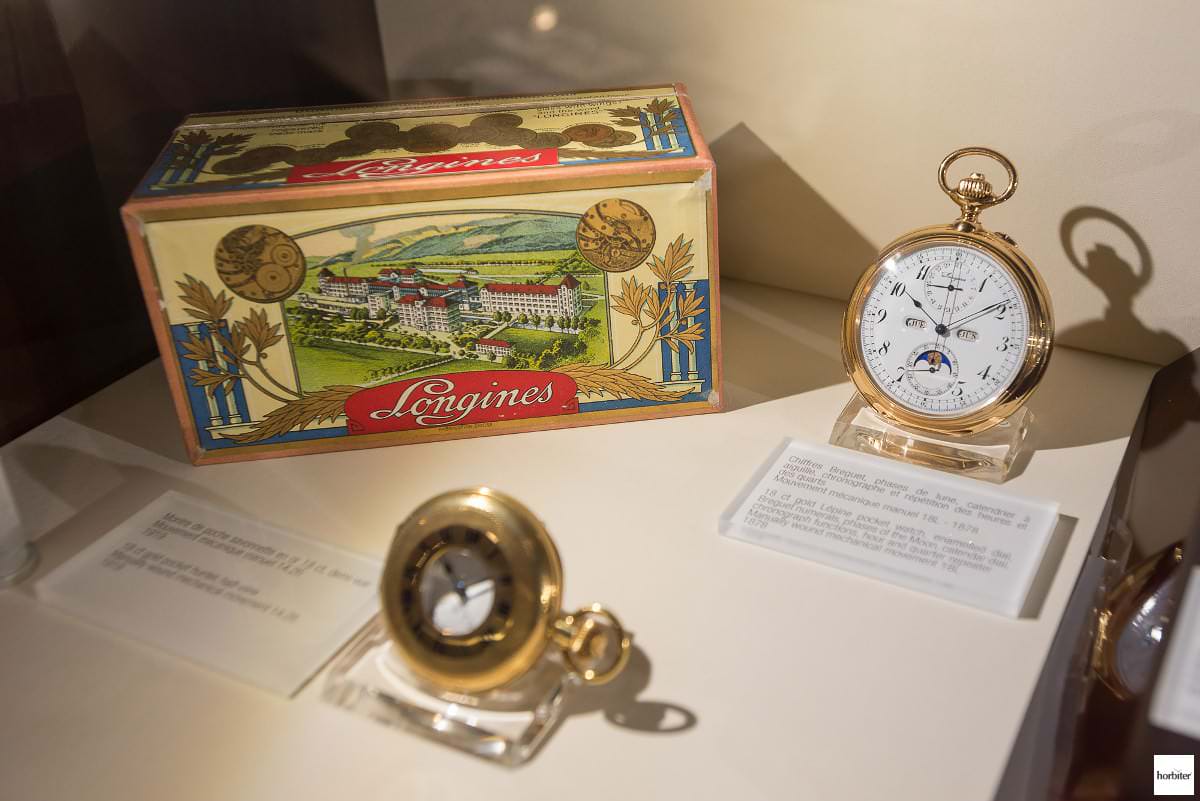 Needless to say that the first half of the 21st century has represented a time of exploration and that watch-making was back then the most reliable navigation instrument, both in the air and in the sea. Even before timepieces became luxury accessories, their current function. Longines lived that time as a protagonist and the very proof of this is the 21.29CS caliber that I mentioned before; this caliber is mounted inside the case of a siderograph, which is a timepiece that provides the user with the Greenwich Time measured in degrees, minutes and fractions of arc minutes.
Needless to say that the first half of the 21st century has represented a time of exploration and that watch-making was back then the most reliable navigation instrument, both in the air and in the sea. Even before timepieces became luxury accessories, their current function. Longines lived that time as a protagonist and the very proof of this is the 21.29CS caliber that I mentioned before; this caliber is mounted inside the case of a siderograph, which is a timepiece that provides the user with the Greenwich Time measured in degrees, minutes and fractions of arc minutes.
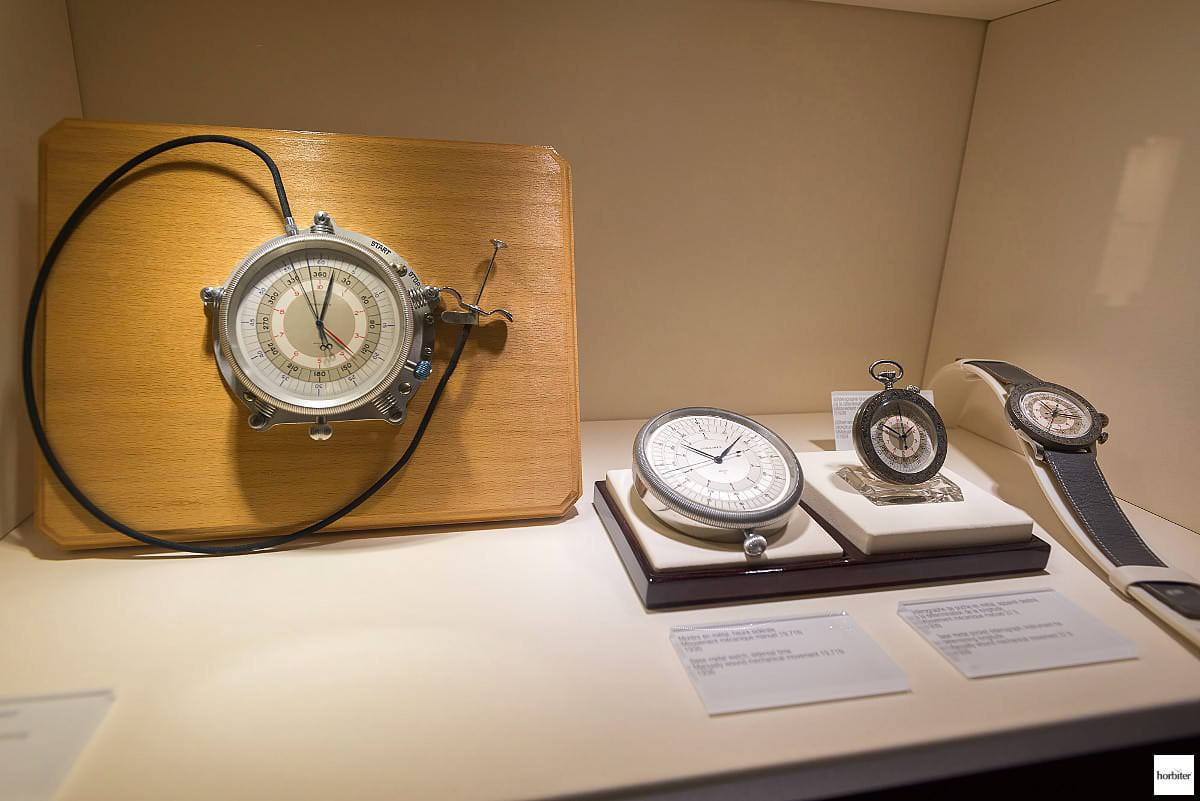 I wasn’t aware of the extent of Longines’s contribution to the world of navigation and it was a very pleasant surprise to be able to see the brand’s big navy chronometers. I am quite familiar with the Longines Weems Second-Setting Watch and the Lindbergh Hour Angle, the two diamonds in the history of experimental aviation and, at the same time, I envy all those people who are my age and had the luck to inherit one of the two references that sport the Wittnauer logo; the historic New York importer from last century. These are the most modern vintage aviator’s timepieces that I have ever seen in my life.
I wasn’t aware of the extent of Longines’s contribution to the world of navigation and it was a very pleasant surprise to be able to see the brand’s big navy chronometers. I am quite familiar with the Longines Weems Second-Setting Watch and the Lindbergh Hour Angle, the two diamonds in the history of experimental aviation and, at the same time, I envy all those people who are my age and had the luck to inherit one of the two references that sport the Wittnauer logo; the historic New York importer from last century. These are the most modern vintage aviator’s timepieces that I have ever seen in my life.
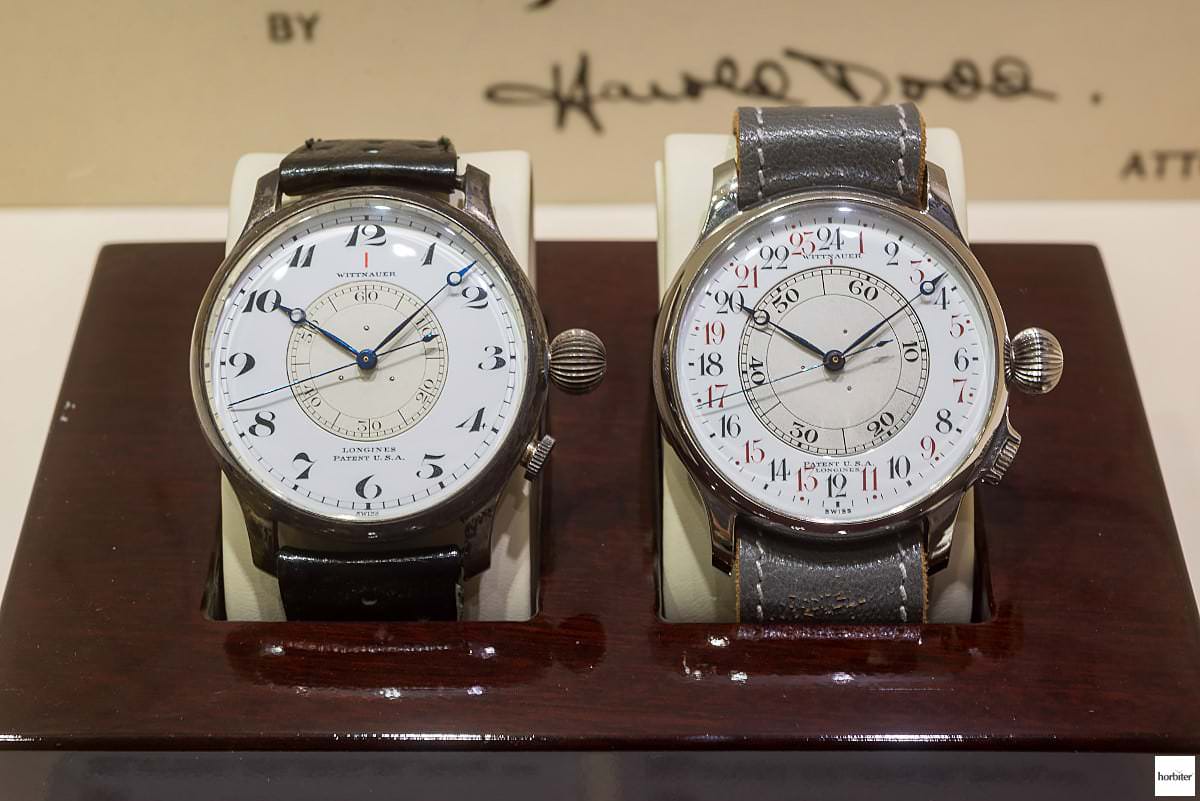 Experimenting has progressively moved from the aircraft cockpit and Charles Lindbergh’s challenges to sport competitions. Longines’s role as an official timekeeper boasts a long tradition that didn’t stop when digital timekeeping was introduced but, on the contrary, it grew even stronger.
Experimenting has progressively moved from the aircraft cockpit and Charles Lindbergh’s challenges to sport competitions. Longines’s role as an official timekeeper boasts a long tradition that didn’t stop when digital timekeeping was introduced but, on the contrary, it grew even stronger.
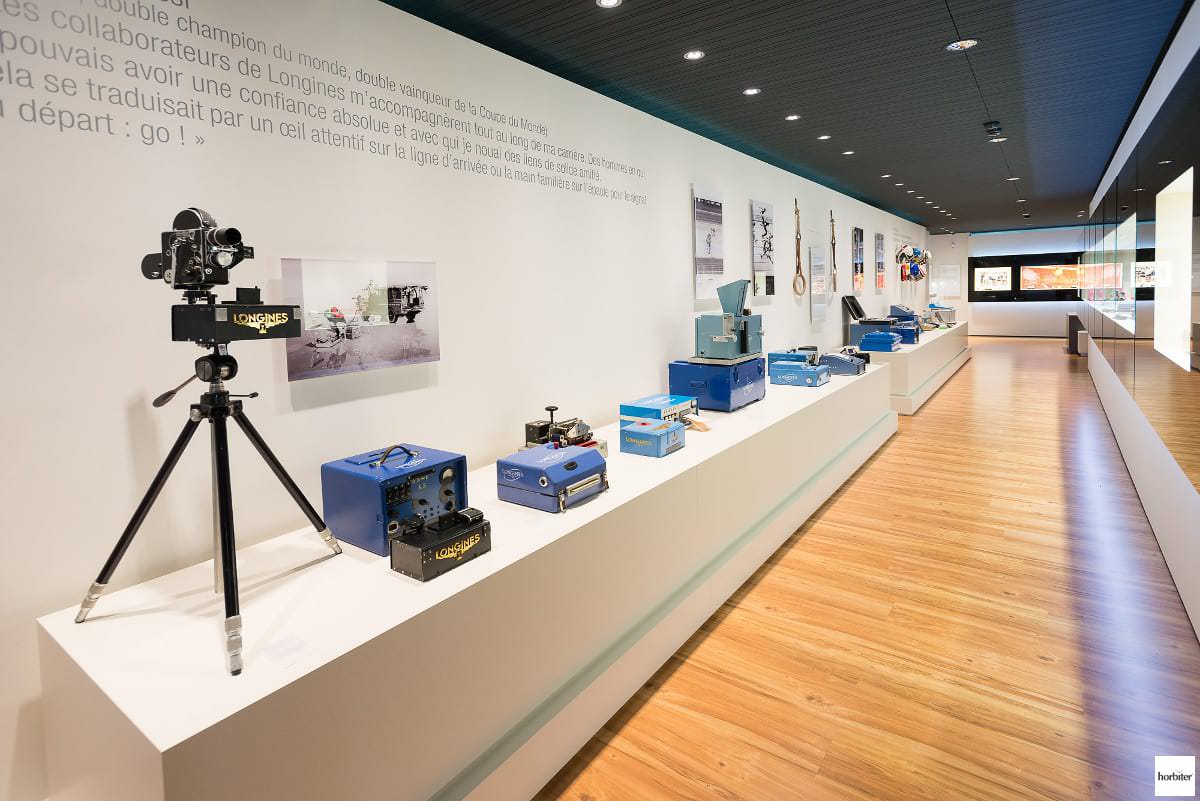 It is to this part of its history that Longines has dedicated an entire section of the museum; from the first broken-wire system to its experience in the world of F1 racing – I still remember the one-seat Ferrari car that sported the Longines logo on its front – . Today, the brand is one of the official partners of classic competitions like the horse-riding Global Championship Tour and of the ski World Cup too.
It is to this part of its history that Longines has dedicated an entire section of the museum; from the first broken-wire system to its experience in the world of F1 racing – I still remember the one-seat Ferrari car that sported the Longines logo on its front – . Today, the brand is one of the official partners of classic competitions like the horse-riding Global Championship Tour and of the ski World Cup too.
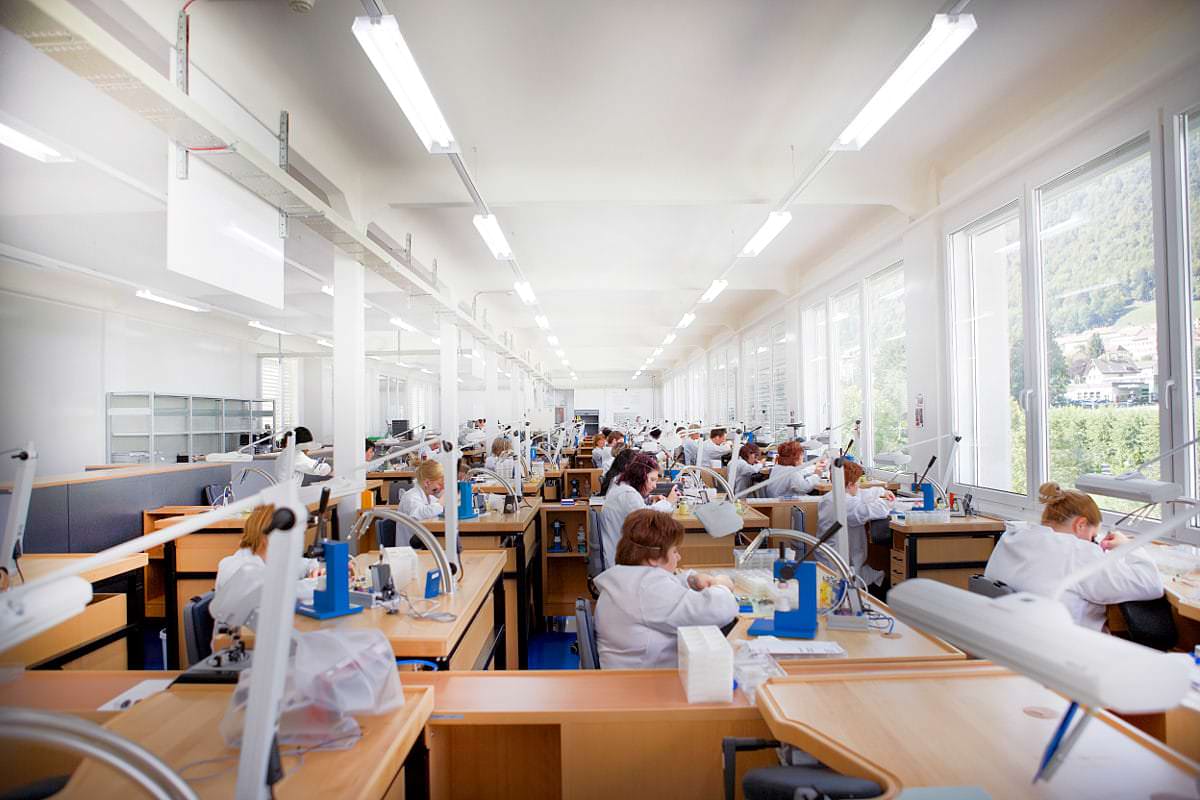 After completing our museum visit, we were “escorted” to the manufacturing site, the only place where, as you can easily guess, we were not allowed to take any pictures. I haven’t visited many manufacturing sites in the last three years, but I have to say that, type-wise and size-wise, they were very similar to that of Longines. What I gathered from this visit was that, from a technological point of view, the company has moved fast-forward and that it has also increased its investments aimed at improving the quality of its product at the end of the line even further.
After completing our museum visit, we were “escorted” to the manufacturing site, the only place where, as you can easily guess, we were not allowed to take any pictures. I haven’t visited many manufacturing sites in the last three years, but I have to say that, type-wise and size-wise, they were very similar to that of Longines. What I gathered from this visit was that, from a technological point of view, the company has moved fast-forward and that it has also increased its investments aimed at improving the quality of its product at the end of the line even further.
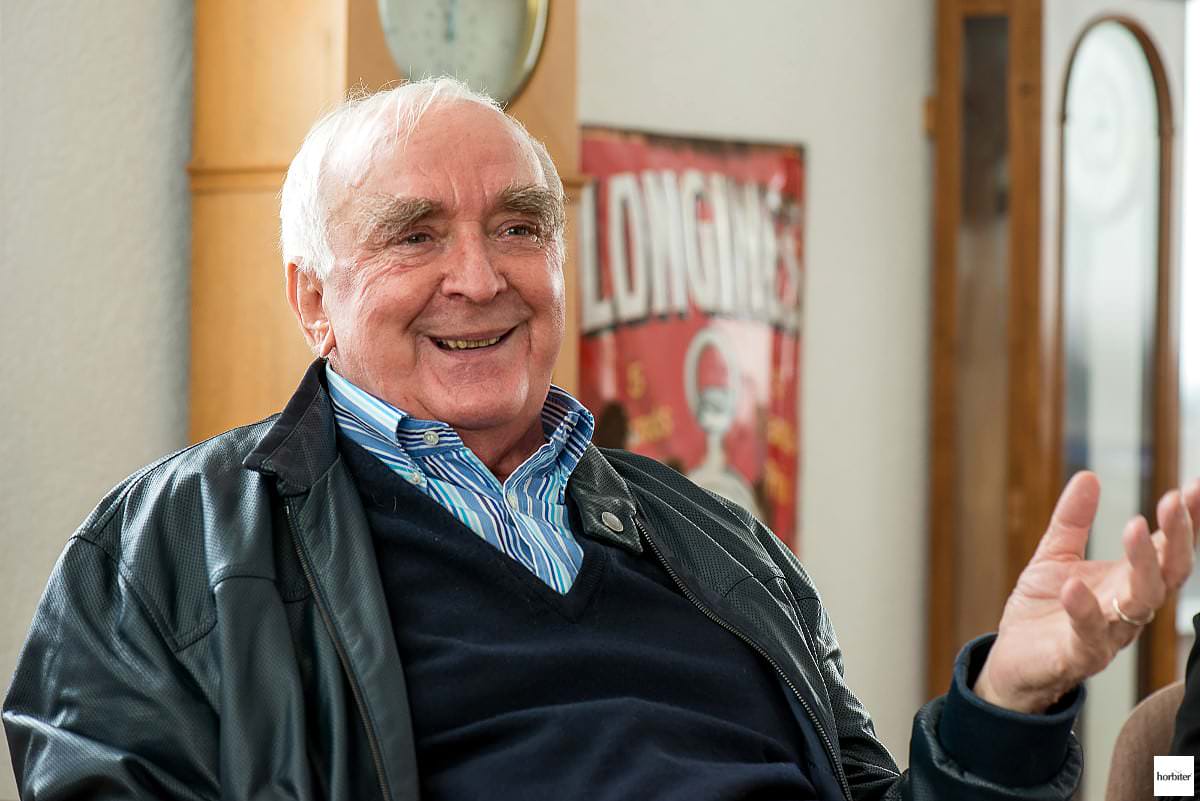 Best moment? The interview to Walter von Känel. He has been the president of Longines since 1988 and he is the symbol of the brand’s continuity spirit, an extraordinarily funny man who talks about timepieces with the same passion as a youngster who has just received a watch as a present. When I asked the president whether Longines would ever create a manual winding Heritage and a rattrapante watch starting off one of its single-button chronographs, he deemed me “a collector”. Those were probably the funniest thirty minutes of my day. An experience that every person who is passionate about timepieces deserves to do and that can be easily booked on this link.
Best moment? The interview to Walter von Känel. He has been the president of Longines since 1988 and he is the symbol of the brand’s continuity spirit, an extraordinarily funny man who talks about timepieces with the same passion as a youngster who has just received a watch as a present. When I asked the president whether Longines would ever create a manual winding Heritage and a rattrapante watch starting off one of its single-button chronographs, he deemed me “a collector”. Those were probably the funniest thirty minutes of my day. An experience that every person who is passionate about timepieces deserves to do and that can be easily booked on this link.
(Photo credit: courtesy of Longines; Horbiter®)
Gaetano C @Horbiter®
@Gaetano Cimmino
